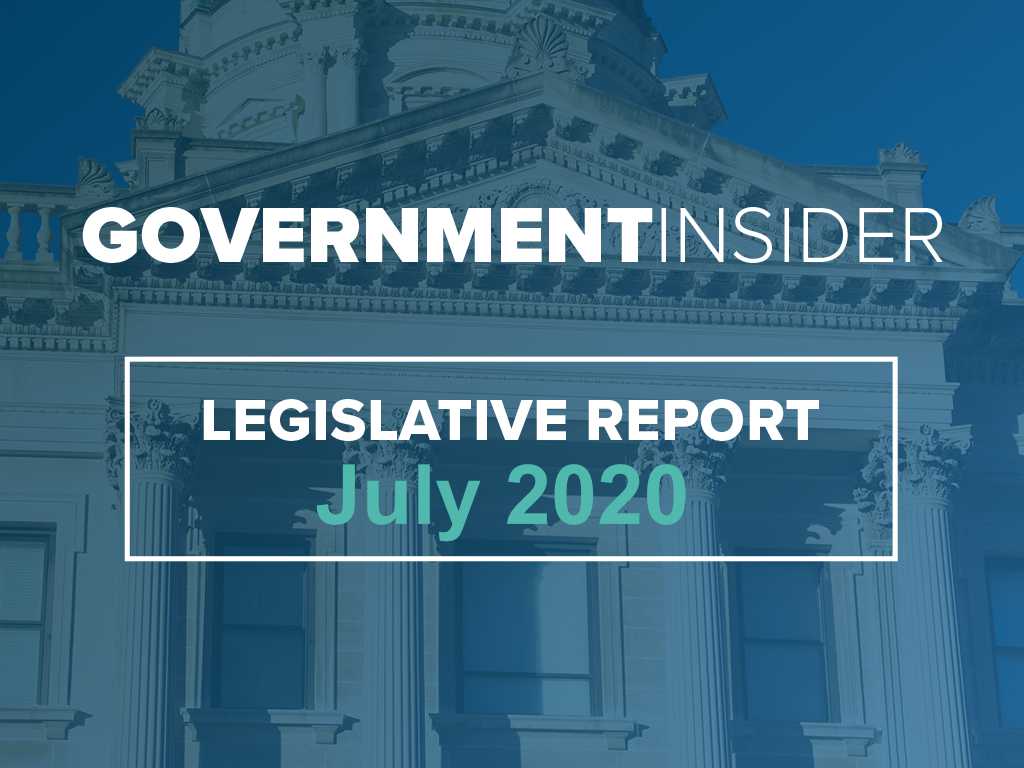Legislative Report July 2020

Federal Legislative Report Summary
July was probably more significant for what didn’t happen – a new wave of stimulus funds for a continuing beleaguered economy. While Congress did manage to pass a bill to extend the application period for the Paycheck Protection Program to August 8 and increase the appropriation for PPP loans to $659 billion, Congress recessed without acting on the next phase of major funding.
The sticking point continues to be sharp disagreement on the total funding needed. But, underlying the disagreement between $3 trillion and $1 trillion lies huge differences in how money would be spent.
In the meantime, President Trump signed four executive orders to provide funding that will continue to stimulate the economy in the short-term. One of the orders extends unemployment benefits to workers who continue to be displaced (with state matching at a reduced supplemental amount of $400 per week from the $600 per week amount that expired at the end of July).
Another order implements a deferral of the 6.2% payroll tax for workers who earn less than $100,000 per year, beginning on September 1, 2020 and ending at the end of the year. The deferral of payroll taxes was a priority issue for the President before the impasse in Congress leading to the August recess. While the extension of unemployment benefits will provide relief for those who remain unemployed, the payroll tax deferral will aid working employees and create another avenue for economic stimulus. But the deferral is not forgiveness of the tax or a tax cut, which only Congress can initiate. Therefore, the question will be – how will this deferral be treated down the road? If Congress does not act to forgive the deferral, it will have to be repaid, probably with a small increase from the 6.2% payroll tax rate when it is reinstituted. This could become a very large and hot political potato and could be a significant point of contention for the next phase of stimulus that most observers from both political spectrums agree needs to be done.
Download the Members-Only Federal Legislative Report
State Legislative Report Summary
July was very active for final bill enactments. There were 24 bills signed into law in 13 states. Many states continue to deal with COVID-19 related issues, but several bills were enacted last month that will impact electronic security and small businesses in ways not related to COVID-19. Colorado SB 20-207 amends current law, which requires the weekly total and partial unemployment benefit amounts to be reduced by the amount of an individual’s wages that exceeds 25% of the weekly benefit amount and will require, for the next 2 calendar years only, an increase to the amount of an individual’s wages that exceeds 50% of the weekly benefit.
Another Colorado bill (SB 20-205) will require all employers in the state, regardless of size, to provide each of their employees paid sick leave for reasons related to the COVID-19 pandemic in the amounts and for the purposes specified in the federal “Emergency Paid Sick Leave Act” in the “Families First Coronavirus Response Act”. Starting January 1, 2021, for employers with 16 or more employees, and starting January 1, 2022, for all employers, the act requires employers to provide paid sick leave to their employees, accrued at one hour of paid sick leave for every 30 hours worked, up to a maximum of 48 hours per year.
Florida SB 70 enacted “Alyssa’s Law” requiring each public school to implement a mobile panic alert system connected directly to a designated law enforcement agency for use in non-fire emergencies, including active shooters.
Mississippi SB 3049 and North Carolina HB 118 will provide business liability protections (with limitations and condition) for potential claims arising from COVID-19.
New York AB 6787 was enrolled and sent to the Governor on July 22, 2020. This bill would place a moratorium on the use of biometric identifiers (including facial recognition) in public schools for two years.




